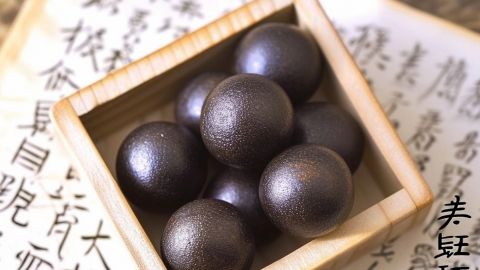What is the difference between Jianwei Xiaoshi Tablets and Hawthorn Pills?
Generally speaking, the main differences between Jianwei Xiaoshi tablets and Shanzha pills are reflected in aspects such as composition, functional emphasis, applicable population, taste and dosage form, and intensity of action. The choice should be based on the specific type of digestive problem. Detailed analysis is as follows:

1. Composition: Jianwei Xiaoshi tablets mainly contain Radix Pseudostellariae, Tangerine Peel, Yam, stir-fried barley malt, and Hawthorn, making them a combination of multiple traditional Chinese herbs. Shanzha pills primarily contain Hawthorn, supplemented by Six God Qu (a fermented preparation) and stir-fried barley malt, thus having a relatively simpler composition and mainly relying on Hawthorn for digestive effects. Both contain Hawthorn and barley malt, but Jianwei Xiaoshi tablets include additional tonic ingredients, addressing both digestion and spleen strengthening.
2. Functional Emphasis: Jianwei Xiaoshi tablets focus on both promoting digestion and strengthening the spleen. They can relieve food stagnation while also improving chronic indigestion caused by spleen and stomach weakness, making them suitable for individuals with weak digestion. Shanzha pills primarily focus on eliminating food accumulation, particularly effective for meat-induced indigestion. They act more directly on abdominal distension caused by excessive consumption of meat or greasy foods but lack significant spleen-strengthening effects.
3. Applicable Population: Jianwei Xiaoshi tablets have a broader application range. Besides those with food stagnation, they are also suitable for elderly people, children, and individuals with weak spleen and stomach functions for daily regulation, helping relieve poor appetite and post-meal abdominal distension. Shanzha pills are more suitable for individuals experiencing acute food accumulation due to overeating. They are not recommended for long-term use by individuals with weak spleen and stomach functions but without obvious food accumulation, as this may burden the digestive system further.
4. Taste and Dosage Form: Jianwei Xiaoshi tablets are usually film-coated or chewable tablets with a slightly sweet taste, making them convenient to take, especially suitable for children and those with difficulty swallowing. Shanzha pills are typically honey pills with a strong sweet and sour flavor, needing to be chewed or divided into smaller portions before swallowing. Some people may find the taste overly sweet and prefer to take them with warm water.
5. Intensity of Action: Jianwei Xiaoshi tablets have a mild effect and work relatively gradually, making them suitable for long-term management of mild chronic indigestion. Shanzha pills, with a higher concentration of Hawthorn, have a stronger effect on eliminating food accumulation. They relieve symptoms such as abdominal distension and belching more quickly for acute meat-induced indigestion. However, excessive use should be avoided to prevent irritation of the gastrointestinal mucosa.
In daily use, medication should be selected according to the specific digestive issue. For long-term indigestion caused by spleen and stomach weakness, Jianwei Xiaoshi tablets are preferred. For occasional overeating-induced food accumulation, Shanzha pills can be chosen. A light diet should be maintained during medication, avoiding spicy and greasy foods, and regular meals should be taken to aid digestive function.




